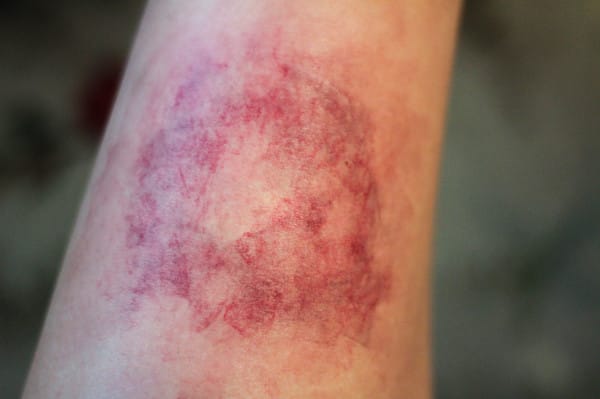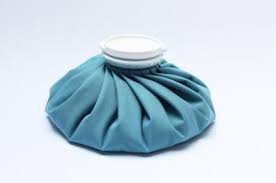Bruising is a normal part of the recovery process after surgery. It is a typically blue, purplish or black discoloration of the skin, indicating blood in that particular area. Pain, tenderness and swelling usually accompany bruising after surgery. Certain ways will help you recover faster and manage the postoperative bruising easily.

Why Is There Postoperative Bruising?
Bruising occurs due to a leakage of blood from the tiny blood vessels, known as capillaries. Even though most of these blood vessels are carefully cauterized during the surgical procedure, they may ooze again when the blood pressure returns to normal, causing bleeding. Bruising also occurs in cases when the surgeon has not used the vacuum wound drain.
There is no need for you to worry, as this bleeding is not severe. The bruising will fade away after a few days. However, if you have fever, heat in the surgical area and other changes at the operation site, please consult your doctor immediately, as you are likely to have an infection.
How to Treat Bruising
Certain things can help you treat bruising after the surgery:
 Cold compresses on the bruise will make it disappear faster, enhancing the healing process.
Cold compresses on the bruise will make it disappear faster, enhancing the healing process.- Don’t apply heat on the bruise, as it will just make your condition get worse.
- Drink a lot of fluids, especially fruit juices rich in vitamin C as they will help resolve bruises faster.
- Apply Arnica Montana, a homeopathic medicine. It helps resolve the skin discoloration.
- Specific substances like quercetin and bromelain, which are found in apples, pineapples, capers or even red onions, have anti-inflammatory properties. They can help reduce swelling and bruising after surgery.
 Eat foods rich in antioxidants such ad spinach, carrots, green leafy vegetables, beat roots, raspberries, etc. Antioxidants will help absorb the bruise quickly.
Eat foods rich in antioxidants such ad spinach, carrots, green leafy vegetables, beat roots, raspberries, etc. Antioxidants will help absorb the bruise quickly.- Apply gels and ointments rich in vitamin K on the postsurgical bruise. It is well known that vitamin K helps strengthen the blood vessels as well as reduce the skin discoloration faster.
- Avoid smoking as it will slow down your recovery after a surgical procedure. Avoid cigarette smoking for a couple of weeks before and after the surgery.
- Avoid stress as it will just prolong your recovery.
- Avoid injuries on the surgical area as they will just make your situation even worse.
- Eat a balanced diet. Good nutrition can enhance your recovery after surgery.
- Don’t stretch yourself too much. During the first couple of weeks after the surgery, you should limit the physical activity, as it can just make your bruising get worse and prolong the recovery.
- Elevate the affected extremity if necessary.
How to Prevent Bruising After Surgery
Even though postsurgical bruising is not a serious condition, it can prolong the recovery period and make the surgical site look ugly. Luckily, there are certain things that can help you prevent bruising after the surgery:
- Do not take blood-thinning medications before the surgery, for at least one to two weeks.
- Certain supplements such as gingko biloba, ginger, omega 3, garlic pills and vitamin E are all blood thinners that should be avoided before the surgery and during the recovery period. They will make your bruising just get worse.
- Consume more proteins. Eat more eggs, nuts, fish or poultry before and after the surgery in order to strengthen the walls of your blood vessels and prevent postoperative bruising.
- Start taking vitamin C a couple of days before the surgery, as it will help strengthen the capillaries and prevent bruising after the surgery.
- Eat healthy fats instead of unhealthy fats as they will make the walls of your capillaries flexible. Your diet should contain vegetable oil, fish oil, seeds or avocados.
- Bioflavonoids should be part of your diet. Foods abundant in bioflavonoids like grapes, green beans, oranges or berries will help strengthen your connective tissue and blood vessels, preventing bruising after surgery.
- Surgical garments are also helpful in preventing postoperative bruising.
- Vitamin K shots are recommended before the surgery if you have a vitamin K deficiency. These shots will restrict the bruising and excessive bleeding.
- Don’t drink alcohol, especially in combination with NSAIDs, as it will cause thinning of the blood, making your postoperative bruises worse.
